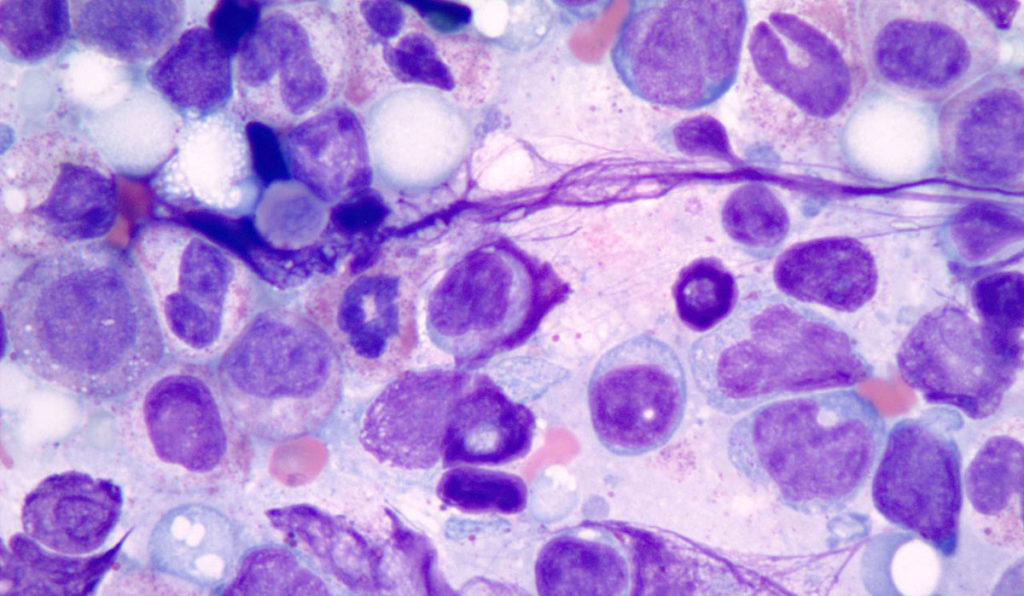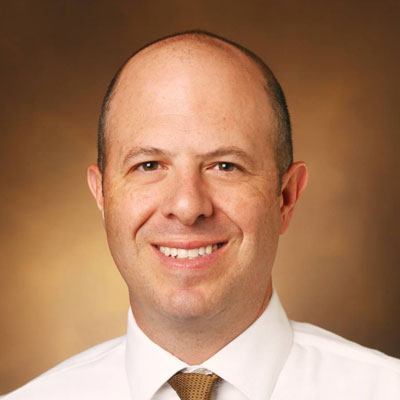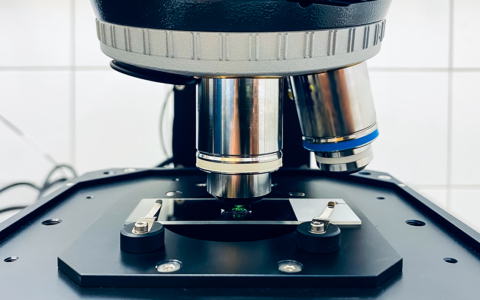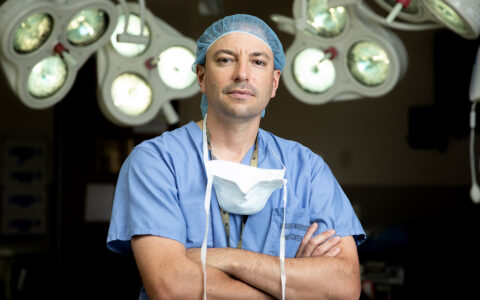“Probably the most important thing about these diseases is that there’s insufficient approved therapy for them,” said Michael Savona, M.D., professor of medicine and cancer biology and director of hematology research at Vanderbilt-Ingram Cancer Center.
Savona is describing an entire group of rare cancers – myelodysplastic syndromes (MDS) – that occur when immature blood cells in the bone marrow don’t fully develop. “Myelodysplastic syndromes are heterogeneous and range from slow and insidious to proliferative, with high risk of transformation to acute myeloid leukemia,” Savona said.
Now, new MDS therapeutics are moving from cell culture to clinical trials, with help from Savona’s research team. “Everything I do is based on translation,” Savona said. “Our goal is to get the right therapy into the proper individuals as quickly as possible.”
Cell Death Targets
Previous work by Savona and others has shown apoptosis (programmed cell death) is dysregulated in myelodysplastic cells.
“There’s a whole series of proteins that control whether the cell lives or dies. Proteins that make the cell live are anti-apoptotic,” Savona explained. “In these cancers, anti-apoptotic proteins increase dramatically.”
Savona is developing ways to target these cell death mechanisms therapeutically. The work has centered around the BCL-2 family of anti-apoptotic proteins that are upregulated in myelodysplasia. The proteins are promising cancer targets, as blocking them restores cell death.
A “Paradigm Shift”
In 2017, Savona received a Discovery Research Grant from The Edward P. Evans Foundation to test small molecules designed to restore cell death in myelodysplasia. He and collaborators in the laboratory of Vanderbilt colleague Stephen Fesik, Ph.D., synthesized and tested a new inhibitor of MCL-1, a BCL-2 family anti-apoptotic protein, in acute myeloid leukemia (AML) cells.
“We looked at samples from cancer patients who went on one of these novel BCL-2 family inhibitors, venetoclax, but relapsed,” Savona said. “After they failed venetoclax, we gave their leukemia samples both drugs in the laboratory and eliminated nearly all of the cancer cells.”
The two inhibitors, which target different proteins within the BCL-2 family, work on proteins that can behave mutually exclusively in leukemia. When the leukemia grew back, it was drug-resistant and leveraged different anti-apoptotic proteins. Said Savona, “This was a paradigm shift. We were the first to actually show that the resistance to AML may be conquered by manipulating anti-apoptotic family members with selective inhibitors, in samples from venetoclax-treated patients.”
“We were the first to actually show that the resistance to AML may be conquered by manipulating anti-apoptotic family members with selective inhibitors.”
Clinical Trials
Savona’s preclinical studies help lay the foundation for trials to bring novel combination therapies to patients. The therapies could be used in combination with other therapeutic approaches, such as stem cell transplants.
Savona is the principal investigator and sponsor of an international clinical trial currently recruiting patients with MDS/MPN Overlaps Syndromes, closely related to MDS. The basket trial is designed to build on the infrastructure of sites with MDS/MPN expertise to quickly evaluate therapies. It will compare different combinations of four investigational drugs and could add novel BCL-2 family inhibitors to treatment regimens.
Savona says a key to effective combination therapy, and to overcoming drug resistance, is understanding which anti-apoptotic proteins are more important at a given time for an individual patient’s cancer. He suggests that in the future new MDS patients will be evaluated for the type of anti-apoptosis proteins involved in the cancer’s growth, and targeted therapy will be applied accordingly.
“It’s all about inhibiting how the cell keeps itself alive,” he said. “Maybe a BCL-2 inhibitor would be a great drug for a patient. But if not, how can we develop new therapies that target other important survival signals in the cancer cell?”





